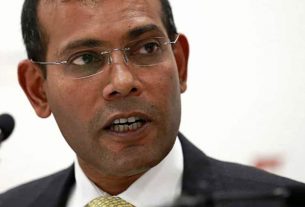
Battered by a constantly depreciating rupee and rising costs, the last thing India’s airline companies needed right now was a hike in aviation turbine fuel (ATF) price.
But that’s exactly what the country’s state-run oil marketing companies (OMCs) have gifted the beleaguered passenger carriers. Today (Oct. 01), the OMCs increased ATF prices by 7.25%.
“(ATF) domestic prices in pan-India have been revised upward effective 1st October 2018 on account of higher jet fuel prices in the international market coupled with (the) weakening of Indian rupee as against US dollar (exchange fluctuation),” Indian Oil Corporation said in a press release.
The OMCs have not included the 5% customs duty levied by the government in the latest revision. Now, a kilolitre of ATF is priced atRs74,177 in Mumbai. In Delhi, it is expected to cost around Rs74,530 per kilolitre.
This level was last seen four years ago in March 2014 and is just a little short of the all-time high of Rs77,089 (in Delhi) that was seen in October 2013.
“The twin impact—7.3% hike in ATF and crashing rupee—is going to be devastating for us as most costs of airlines (like aircraft lease rentals and maintenance contracts) are in dollars. Oil companies have informed us of the steepest hike in recent times from Monday. Jet fuel prices in India for domestic flights are already the highest globally,” an airline official told the Times of India newspaper.
The timing couldn’t have been worse for the airlines.
IndiGo, India’s largest carrier by market share, saw profits nosedive 97% in the quarter ended June. Both Jet Airways and SpiceJet, India’s second- and fourth-largest airline companies, respectively, posted losses for the same quarter. While IndiGo’s fuel expenses alone rose 54% year-on-year, Jet Airways’s fuel cost for the quarter rose 35%.
Fuel price hikes impact Indian aviation companies more than the foreign ones operating in the country. Typically, fuel accounts for 24.2% of an airline company’s costs. For Indian companies though, it accounts for 34% due to a lack of competition among those supplying fuel at Indian airports and hence there is little commercial incentiveto keep fuel prices flexible.
The rise in price comes right ahead of India’s biggest festive season.The increase in fuel price will be passed on to the consumers, which will make air travel costlier. Airfares generally tend to remain high from October to December because of festive demand.
“Compared to last Diwali, domestic airfares have gone up by approximately 8% as of now,” the Times of India said, quoting an official from the travel company Cox and Kings.





